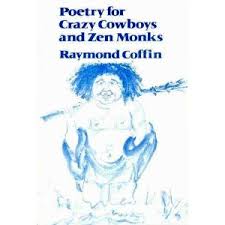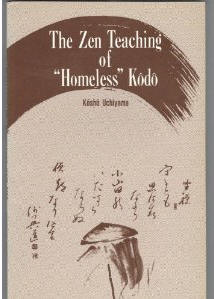|
Interview with Tom Wright Tom Wright Tom Wright has lived in Japan for over thirty-five years. He was ordained a Soto Zen priest in 1974. Mr. Wright has written on Zen, Zen gardens, and has co-translated Opening the Hand of Thought: Approach to Zen and Refining Your Life. Besides working for the Kyoto Soto Zen Center, he is an associate professor at Ryukoku University. - from Kyoto Gardens See notes on other books at the bottom of this interview.
Uchiyama Roshi commented on his meeting with Suzuki Roshi - he admired him very much, first of all. He thought he was really a fine teacher. Uchiyama was six years younger. He’s 84 or 85. When Suzuki Roshi finished talking to Uchiyama Roshi he came into a room where 15 or 20 of us non-Japanese folks had gathered and he sat down and everyone was waiting with bated breath to see what kind of lecture he was going to give and he smiled and we smiled and he laughed and we laughed and he said, I’m not sure what you’re waiting for. I have nothing to say. If you have questions I’ll be happy to address them but I have nothing to teach. And that was the beginning of a two to three hour conversation with him. It opened up after that. It was a great time. Most of the things that he said to us were really in [Zen Mind,] Beginner’s Mind. He wasn’t particularly trying to go over new ground as much as simply talk to non Japanese who at that time were at Antaiji and who weren’t interested in the Zen Center type things that were going on in the states at that time. DC note: I interviewed a Japanese person who was there - can't remember who now - who said that first Suzuki met with Japanese and spoke in Japanese and he said they weren't so impressed, but that some of them went to the English meeting and in that meeting they were impressed with Suzuki and understood why he was a popular teacher. Maybe it was Tom who told me this. TW: When Suzuki Roshi died, Uchiyama commented that it was a shame that he hadn’t made more Japanese disciples. I think that the reason that Uchiyama Roshi made the comment that he did was because there were a couple of people from the Zen Center, namely the abbot at that time or the fellow who became the abbot - to put it bluntly, there wasn’t very much respect there - Uchiyama Roshi didn’t think much of him. DC note: I remember something else Tom told me which makes me wonder when. Maybe I didn't write it down. Anyway, he said that Uchiyama made a comment once that indicated he assumed that Shunryu Suzuki had gone to America to escape his shame due to his wife having been murdered. An event like that was known to the whole Zen world, especially the Soto world and I've heard this idea from others and it might have been a factor, but he'd always wanted to go to America or somewhere outside of Japan to teach Zen. TW: I had to translate for Dick and Ginny and at that time he was 38 which I thought was pretty old and he subsequently asked my wife and me to stay at their house in Gentaku below Antaiji which we did so there was a relationship going. It was Gary Snyder’s house. We lived with Nakamura-san for a half a year. I had to translate for Dick whenever he went up to talk to Uchiyama Roshi and what was always on his mind - the feeling I had - he saw himself as the master and he was trying to pump Uchiyama Roshi for stories about Sawaki Roshi so he could incorporate them into his own teisho. That used to irk me a lot. He never asked questions about the Buddha Dharma - just give me some interesting anecdotes. He never gave any sincere feeling like he was a student. Maybe Suzuki Roshi met Uchiyama Roshi in November of ‘69. [No ‘70] I remember it was cold and we had an oil stove in the room. He and Uchiyama Roshi hit it off very very well. I was going to Antaiji all the time then and I had tea with Uchiyama Roshi soon after that and he and Watanabe Koho who was Uchiyama Roshi’s senior disciple at that time said they really liked Suzuki Roshi very much. Watanabe left Antaiji about 5 years ago to go to Italy with three Italians who’d been at Antaiji and now he’s back in Japan - he had prostate cancer but has recovered and is living in a temple in Japan now. Suzuki Roshi and Uchiyama Roshi met in Urs’ private room and maybe Watanabe-san was helping to serve tea. DC note: Urs App. TW: Uchiyama was the only student who stuck with Sawaki Roshi the whole time. He took care of him the last three years of his life - took care of him and nursed him. I came in ‘67 and Sawaki died in ‘65 so I never met him but I’ve read Sawaki’s teisho Zenshu and as far as the war goes the one thing that sticks in my mind that Uchiyama mentioned to me when the Italians asked about war, Uchiyama said he’d asked Sawaki did you kill anyone and he said no, I always aimed over everyone’s head. He was wounded - he had a number of purple hearts - he was in China - a lot of people came to hear his war stories. There are 15 volumes of his teisho but he didn’t write. Sakai Tokugen, a disciple of his, put them together. He’s about ninety something now. He was at Komazawa. Sawaki died in ‘65 at the age of about 93 - gosh, even if he was 83 it makes him pretty old. [I’m asking about how he could have been in the war.] His book, Homeless Kodo, is sayings of his that Uchiyama remembered. Anyway, I never heard that Sawaki was a pacifist. DC note: He’s telling me that because Grahame Petchey had told me that Uchiyama was a pacifist who openly protested the war and got away with it. Same sort of myth that was around Shunryu Suzuki. There’s something behind these myths but not the substance of them. TW: I was in a monastery in Kyushu about ten years ago named Myokoji and there are very few Soto temples in that area and the reason for that is that a number of them were burned down, often with the priests inside, during the Shinto revival - during the Haishaku Kishaku or whatever it’s called. There’s a fellow in Kyushu who studied with Sawaki named Honda Tekifu - he’s at a temple called Zuisekiji near Fukuoka. He doesn’t speak English but his wife does. And he practiced with Uchiyama Roshi too. Uchiyama Roshi started studying with Sawaki Roshi in ‘40 or ‘41. He took tokudo and then as the war was going on Sawaki moved him around so he wouldn’t get drafted. He was cutting wood and making salt. He was somewhere in Shizuoka for a while. Uchiyama hated Eiheiji and so did Sawaki. When Sawaki was offered the abbotship of Eiheiji he said not even a dog would take it. I don’t know who Sawaki’s teacher was. He transformed Antaiji from being just a research center for the Shobo Genzo to being a place where it was also a practice place and Uchiyama Roshi continued that way - there weren’t any ceremonies. Work, study and sitting, takuhatsu. Sawaki’s teacher was somewhat of a jerk. Sawaki said that jerks can also be teachers. DC: Like Suzuki’s teacher, Gyokujun So-on. TW: If I come I’ll bring Michael Hofmann.
1-12-14 - As a result of getting an email about this post (see bottom note) realized that I met Michael Hofmann in recent years. He moved to Sonoma County and is involved with the Pacific Zen Inst and has had art shows and classes there and at the SFZC. Wrote him to make sure it was him cause his last name was spelled a little differently in this post before and got this back: Yep, Ray was a good friend of mine--I met him soon after arriving in Kyoto back in '72--about the same time I met Tom Wright. Ray passed away in the late 80's (early 90's?), Tom and his wife Yuko now live in Hawaii. Just found a cover image to download. This is a good example of how I spend my time chasing minutiae while infinite suffering goes on all around me and the world as we know it is coming to an end. Oh well. - dc- dc
Tom must have had some involvement with this excellent cult classic, popular, yet hard to find book. Tom was a translator for Uchiyama and worked on Opening the Hand of Thought: Foundations of Zen Buddhist Practice by Kosho Uchiyama - also with Shohaku Okamura and Jisho Warner - Amazon link From the Zen Kitchen To Enlightenment : Refining Your Life, also with Shohaku Okamura Tom assisted with the translation of Shobogenzo Zuimonki that Shohaku Okumura did years ago and it is still available at the Sanshinji website. Thanks to BC for this last tip and for correcting the spelling of the word "bated." And Okumura which I checked on the Sanshinji site and found it misspelled there in one place too. |
As an Amazon Associate Cuke Archives earns from qualifying purchases.

